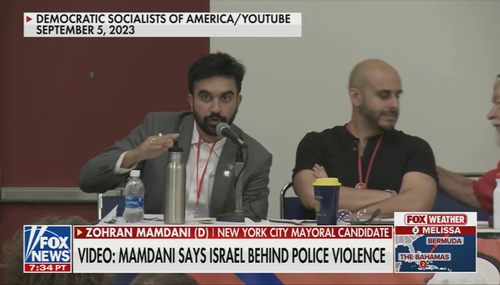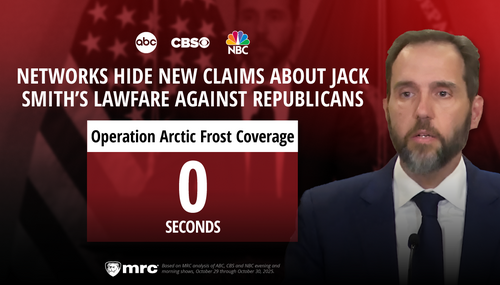"Feisty campus dissent is back. And it’s winning," exulted msnbc.com's Aliyah Frumin in her May 15 story, teased on the main page with the header, "Commencement speakers drop like flies." [see screen capture below page break]
"In the last few weeks alone, campaigns at three schools forced commencement speakers to pass up significant speaker fees rather than face angry campuses," Frumin noted, adding that "[t]he last-minute cancellations have proved embarrassing to school leaders" and conceding that in turn they "have raised concerns about free speech and exposure to opposing views in settings designed to foster free thought." Although Frumin did not thread the needle on this point, it's pretty clear from her reporting that it's left-wing pressure groups forcing speakers to drop out on the basis of liberal complaints, while left-leaning speakers seem to face little or no pressure to back down from a speaking gig and/or have the full-throated backing of the campus administration in the event conservatives would protest [emphasis mine]:
And while the art of protesting commencement speakers is nothing new, it is on the rise. Greg Lukianoff, the president of the Foundation for Individual Rights in Education, tracks data on protests. Since 1987, he said, there have been 148 instances in which students railed against potential commencement speakers. Of the 148 cases, about 100 took place in the past five years and resulted in 39 cancellations.
On Tuesday, Robert Birgeneau, the former chancellor at the University of California-Berkeley, was the latest to withdraw as a 2014 commencement speaker at Haverford College. Birgeneau is known as an advocate for minority and undocumented students. But during his tenure as chancellor, he came under fire for how Berkeley’s police force responded to Occupy protests in 2011.
Birgeneau’s decision came one day after International Monetary Fund managing director Christine Lagarde cancelled her May 18 appearance at Smith College, citing anti-IMF protests from faculty and students. On May 3, former National Security Adviser Condoleezza Rice pulled the plug on her commencement speech at Rutgers University after student demonstrators protested against her role in the Iraq War in 2003. Earlier this spring, students and faculty at Brandeis University forced the administration to withdraw plans to award an honorary degree to Somalia-born women’s rights activist Ayaan Hirsa [sic] Ali because of her controversial remarks about Islam and its treatment of women.
Other 2014 commencement speakers have been subject to student complaints but have not withdrawn from invitations. Those include Rap mogul Sean “Diddy” Combs, who spoke at Howard University last weekend; embattled New Jersey Gov. Chris Christie who will deliver remarks at Rowan University on Friday; former New York City mayor Michael Bloomberg who is scheduled to speak at Harvard University on May 29, and Planned Parenthood president Cecile Richards, who will speak at Barnard College’s commencement ceremony on May 18. [both Bloomberg and Richards are left-of-center]
Lukianoff, of the Foundation for Individual Rights in Education, credits the uptick in protests to a sense of empowerment by students and a relational sense on the part of administrators. Universities, he suggested, have adopted an attitude that “the customer is always right. If you’re paying $60,000 dollars a year, there’s a sense that ‘we have to cater to you.’”
Lukianoff may be partially right on that count, but there's little evidence that the vast majority of graduating students in these cases had strong objections to the commencement speaker. It's almost always a small but very vocal minority clamoring loudly while the majority of students either don't care one way or another or are too busy with studies and other concerns to mount a counter-protest of the vocal minority calling for the speaker in question to back down.
For their part, msnbc.com readers seem to be squarely in the camp of left-wing student agitators, judging by the results of the non-scientific reader poll at the bottom of Frumin's story. "A number of high-profile leaders are withdrawing as 2014 commencement speakers. Overall, did they make the right decision?" asked the poll.
When I checked the poll results during my drafting of this piece, only 39 percent had answered, "No. They shouldn't back down," while 61 percent answered "Yes. In many cases it would have been a distraction."
There was no option suggesting that angry protesters themselves were a needless distraction to the majority of students and parents who want to enjoy a commencement ceremony without politics and protests ruining the moment.





